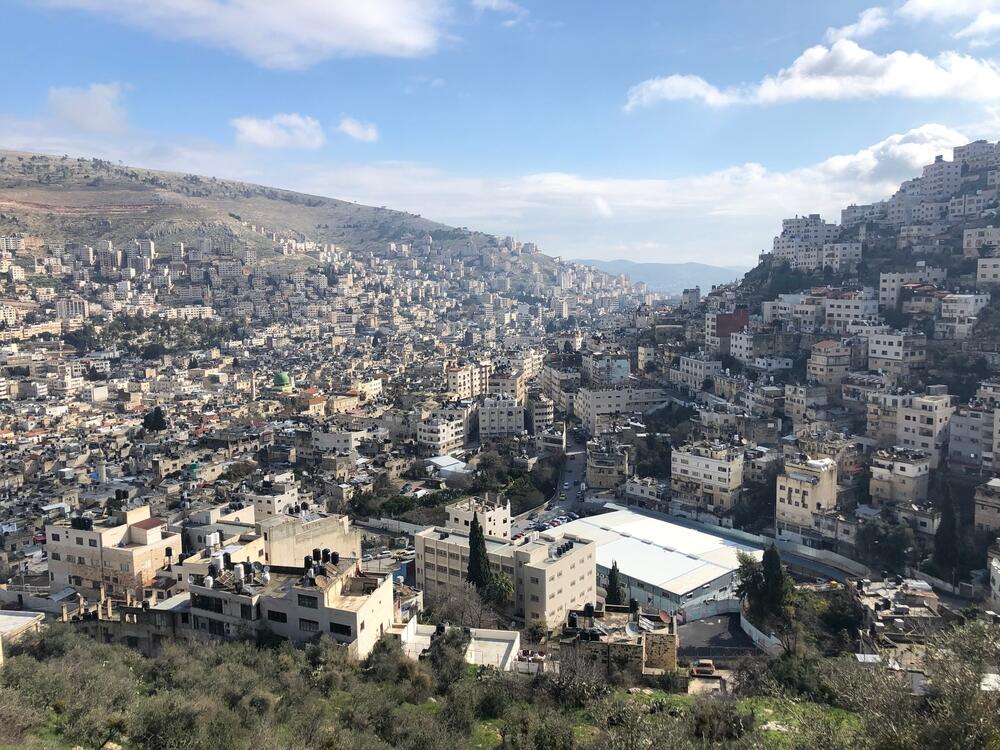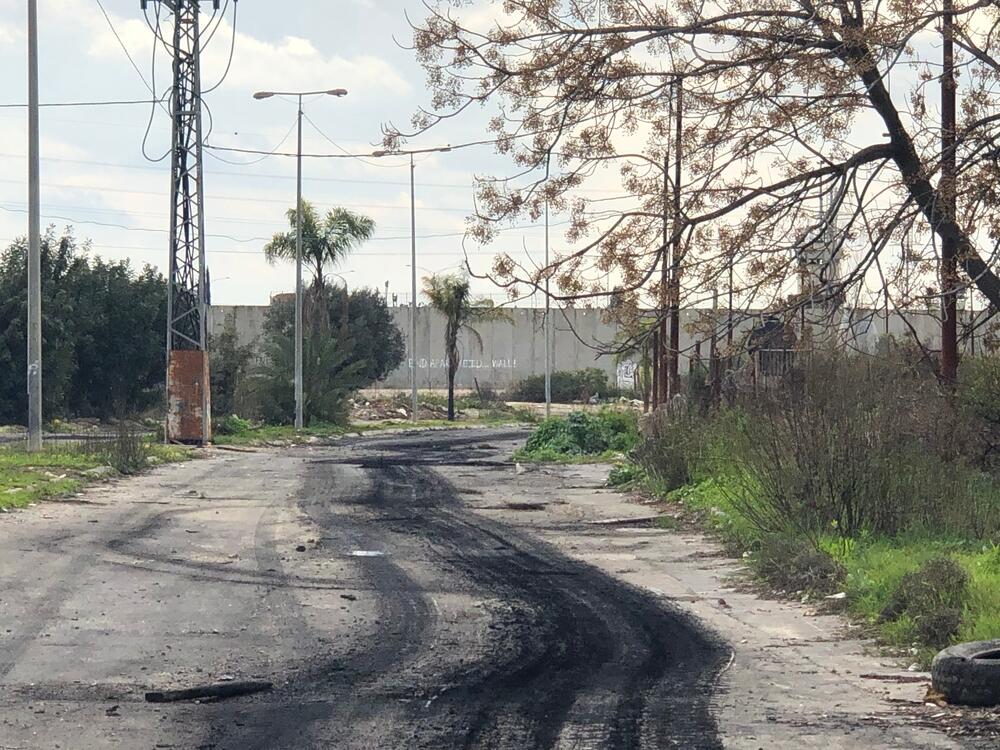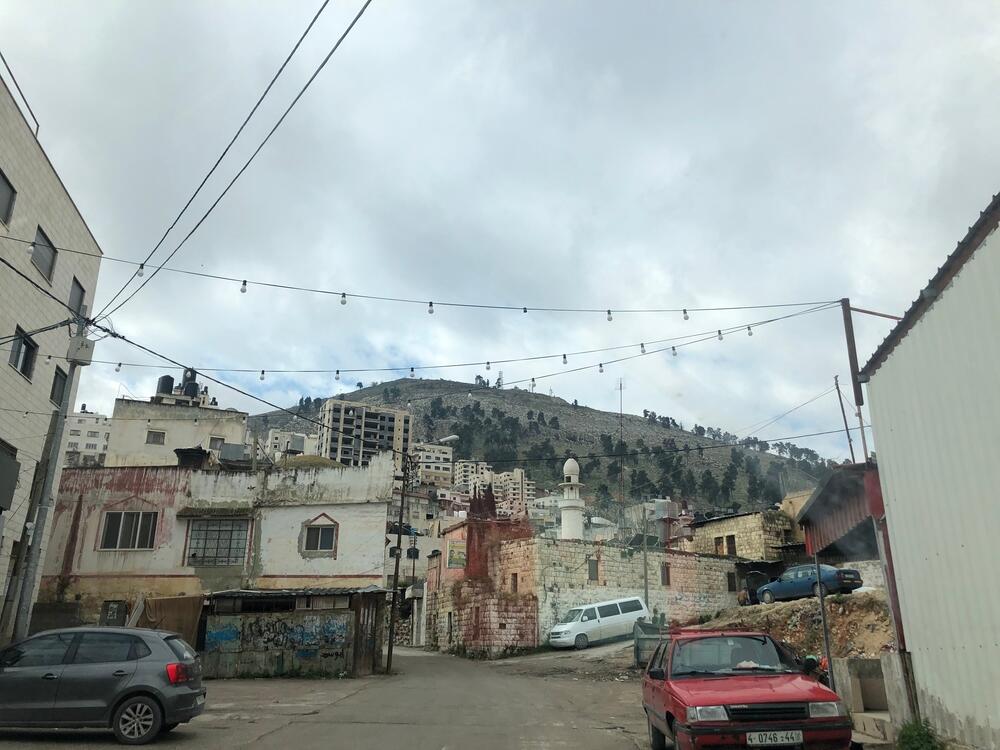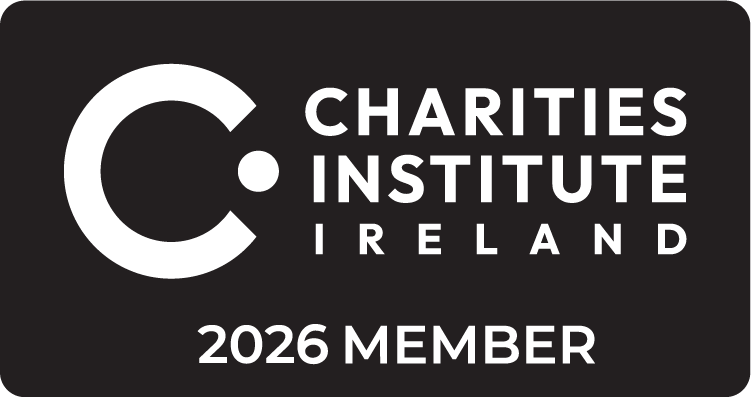Israeli clampdown in the West Bank prevents patients from reaching MSF clinics
9 November 2022
For three weeks in October, Israeli military activities in the northern West Bank prevented patients from reaching the MSF clinics in the area, in a situation that exemplifies both the mundane and extreme ways in which Palestinians are hampered in their ability to access healthcare.
Between 12 October and 3 November, Nablus, a city in the northern West Bank where MSF operates a mental health clinic, became encircled by active checkpoints as part of an Israeli military intervention. These movement restrictions meant that patients needing to reach our premises from the surrounding villages were made to spend hours waiting in lines with no guarantee they would be granted access to the city or take long alternative routes at an additional cost. As a result, over 85 appointments to the MSF mental health clinic were missed or cancelled during this period, causing severe disruptions to the treatment schedules of patients, who are already experiencing moderate to severe psychosocial distress.
Additionally, an increase in clashes between Israeli settlers and Palestinians in the area forced MSF to cancel staff movements to the Qalqilya mental health clinic, an extension of the Nablus project, and to cancel appointments for safety reasons. The outcome of all this is that patients with mental health needs were denied access to much-needed care. Though access has since been restored, the suddenness and unpredictability of the occurrence leaves patients and staff wary of if, when, and how the next disruption will occur.
The road closures imposed by the recent Israeli security operations are just the latest episode of a rise in violence across the West Bank this year. According to figures from the UN in mid-October, “With at least 105 Palestinians, including 26 children, killed by Israeli forces, 2022 has been the deadliest year since 2006, on a monthly average, for Palestinians residing in the occupied West Bank, including East Jerusalem. The monthly average of Palestinian fatalities has increased by 57 per cent when compared with last year. Fourteen Israelis and three foreigners have been killed by Palestinians from the West Bank in 2022.”
The impact of closures in Nablus on access to healthcare for Palestinians was only too clear to MSF staff in the clinic. Sonia, a social worker says, “a lot of patients cancelled or postponed their appointments because they simply could not come, due to either the checkpoints or settler violence on the roads. And as a social worker, I need to see the patient face to face and assess their environment, so I often do home visits, but many of my visits were cancelled too for the same reasons.”
Sonia herself struggled to get to the clinic for appointments. “My patients were very stressed by the situation; even I was very stressed – they wanted to continue their mental health treatment, but they couldn’t.”
Dr. Abdelrahman, an MSF physician who provides psychiatric consultations and medication for patients at the Nablus clinic, says that one of his patients, whose journey to the clinic requires him to cross through two checkpoints, was denied access to Nablus on multiple occasions while trying to reach the clinic. This patient, who needed a prescription refill and a consultation to change his medication, was finally able to access the clinic after three weeks of fruitless attempts, meaning multiple hours in transport and away from his daily routine.
This is typical of the current situation, says Dr. Abdelrahman, and is a reminder of the importance for him to have an emergency plan to ensure his patients get their psychiatric medications in the likely event that a similar situation will occur.
At the MSF Nablus clinic, Dr. Abdelrahman treats patients presenting with moderate to severe psychosocial distress, meaning they already face significant impairment in their everyday lives. He notes these types of closures and disruptions, as well as the ever-present sense of insecurity around the city have acted as additional stressors for his patients. Reflecting on the ramifications of this extended period of uncertainty and violence, he predicts “long term consequences that are difficult to measure”



